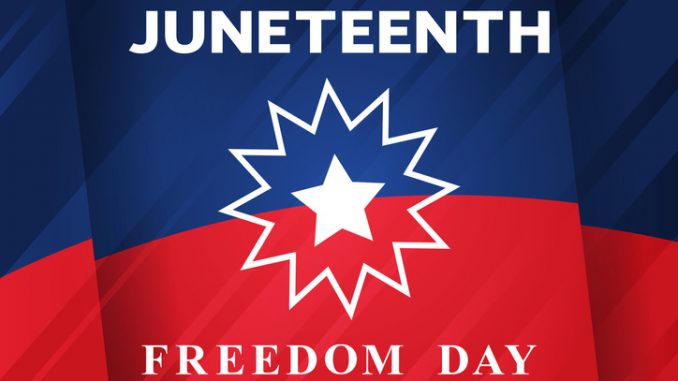
by Tori B. Powell
Ninety-four-year-old activist Opal Lee, who had spent years campaigning for federal recognition of the day, cheered upon learning that the bill had passed. Lee was at the White House when the president signed the bill on Thursday.
Derrick Johnson, president of the National Association for the Advancement of Colored People, told CBS News in a statement that while he was “encouraged” by the move, “it is a reminder that freedom is an ongoing fight.”
But Danielle Hawthorn, vice president of programming at the diversity nonprofit Code 2040, told CBS News that the holiday’s recognition is “performative” and “not enough.”
“It really does feel like a passive move in the midst of some really heavy conversations and asks that are being made by people in the Black community,” she said, adding that “It really misses the mark of the true change that’s needed for Black Americans to live into the freedom that the Emancipation Proclamation allowed for.”
On June 19, 1865, U.S. Army Major General Gordon Granger traveled to Galveston, Texas, to announce that slavery had ended. At the time, many enslaved African Americans were unaware that Congress had passed the 13th Amendment, which abolished slavery, months earlier. The day of Granger’s announcement is now known as “Juneteenth,” “Emancipation Day” and “Juneteenth Independence Day.”
Centuries later, Hawthorn said that “freedom hasn’t been achieved” for Black Americans, which ultimately makes the gesture of recognizing Juneteenth as a holiday “seem contradictory.”
To read this article in its entirety at msn.com, click here.
